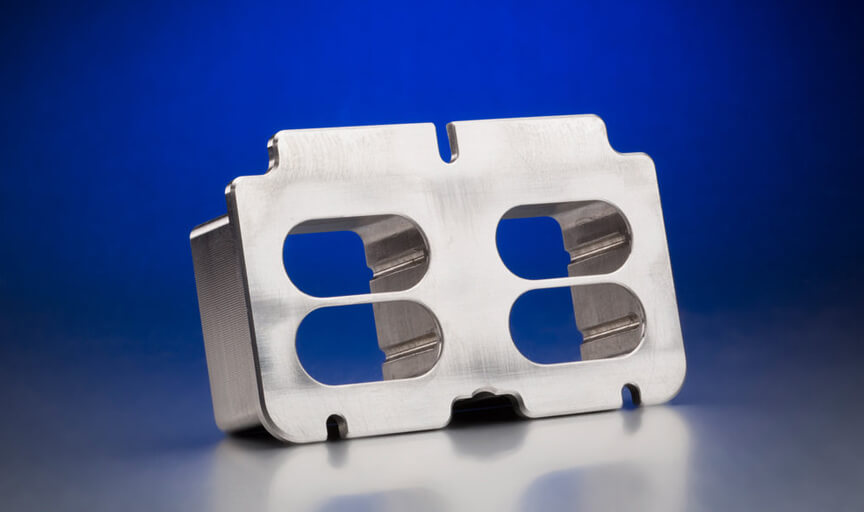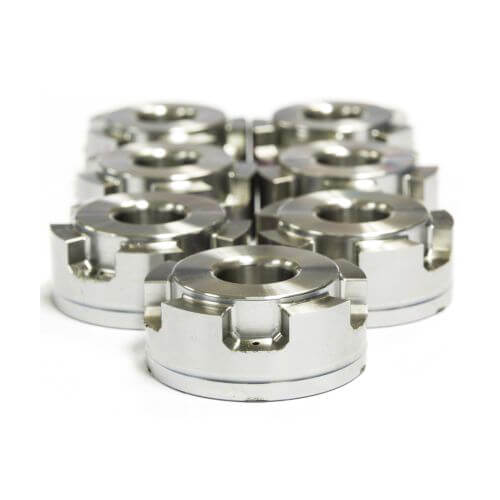This website uses cookies so that we can provide you with the best user experience possible. Cookie information is stored in your browser and performs functions such as recognising you when you return to our website and helping our team to understand which sections of the website you find most interesting and useful.
- Home
- Materials
- CNC Machining Metal
- Invar
- Invar 36
Invar 36

Material Type
Metal
Material Name
Invar 36
Alternative Names
K93600 | 1.3912 | FeNi36
Process Compatibility
CNC Milling, CNC Turning
introduction
Invar 36 in CNC Machining

Invar 36, also known as Alloy 36, is a nickel-iron solid single-phase alloy with a low coefficient of thermal expansion.
It can be easily shaped, machined, and welded using processes similar to austenitic stainless steels, utilizing Filler Metal CF26. The material provides superior dimensional stability, various workability features, and an extremely low coefficient of thermal expansion (CTE). Invar 36 is recognized for its effectiveness in precision machining due to its close-to-zero CTE. This alloy is widely preferred for applications requiring low expansion, as its small CTE makes it a top choice in such scenarios.
Our most common project with Invar 36 is manufacturing precision instruments like clocks, watches, and measuring devices. We also use it in aerospace applications, such as components for satellite systems and instruments on spacecraft, where temperature variations can be significant. There are other industries wherein Invar 36 can be used, such as electronics, metrology and calibration standards, medical devices, etc. Contact our team anytime, and we’ll be happy to guide you.
Properties
Properties Table of Invar 36
| MECHANICAL PROPERTIES | |
|---|---|
| Ultimate Tensile Strength | 510 MPa |
| Yield Strength | 275 MPa |
| Young's Modulus(Elasticity) | 142 GPa |
| Elongation at Break | 42% |
| Hardness | 90-98 HRC |
| Physical Property | |
| Corrosion Resistance | Good |
| Magnetism | Magnetism |
| Weldability | Moderate to Good |
| Thermal Property | |
| Maximum Service Temperature | 320-430°C |
| Thermal Expansion Coefficient | 0.5-2 x 10^-6/°C |
| Thermal Conductivity | 10-15W/(m·°C) |
| Electrical Property | |
| Electrical Resistivity | 75-85 μΩ*cm |
TECHNOLOGY OVERVIEW
Basic Knowledge of Invar 36
What is Invar 36?
Invar 36 is a nickel-iron alloy with 36% nickel. It has a low thermal expansion rate compared to carbon steel.
It is used when minimal dimensional changes are needed with temperature variations or high expansion alloys to achieve the desired motion during temperature changes. It maintains strength and toughness at very low temperatures.
Advantages of Invar 36
Low coefficient of thermal expansion
Dimensional stability at extreme temperatures
Good mechanical properties at cryogenic temperatures
Excellent resistance to corrosion
Minimal thermal expansion mismatch in composite materials
High strength and toughness
Suitable for precision instruments and aerospace applications
Minimal distortion during heat treatment
Weldable and machinable
Long-term stability in harsh environments
Applications of Invar 36
Precision instruments (clocks, watches, pendulums)
Aerospace components (satellites, aerospace instruments, telescope parts)
Scientific instruments (interferometers, telescopes, precision measurement devices)
Electronic components (substrates, connectors)
Cryogenic systems (LNG storage tanks, superconducting magnets)
Thermal expansion compensation (optical systems, laser assemblies)
Medical devices (surgical instruments, medical imaging equipment)
Semiconductor industry applications
Telecommunications equipment (waveguides, antennas)
FAQ
Machining Invar 36 Buying FAQ
Other Materials

Stainless Steel 304
Stainless Steel 304 is a commonly used material in CNC machining. It is known for its corrosion resistance and mechanical properties.

Inconel 718
Inconel 718 is a precipitation-hardening nickel-chromium alloy with high strength, corrosion resistance, and can withstand extreme temperatures.

Tool Steel D2
Tool steel D2 is a high-carbon, high-chromium, air-hardening steel with excellent wear resistance, high compressive strength, and good toughness.
Get An Accurate Quote For Your Next Projects
No matter your project is complicated or simple, no matter is metal or plastic, you will get an accurate quotation within 6 hours.
Get A Quote Today